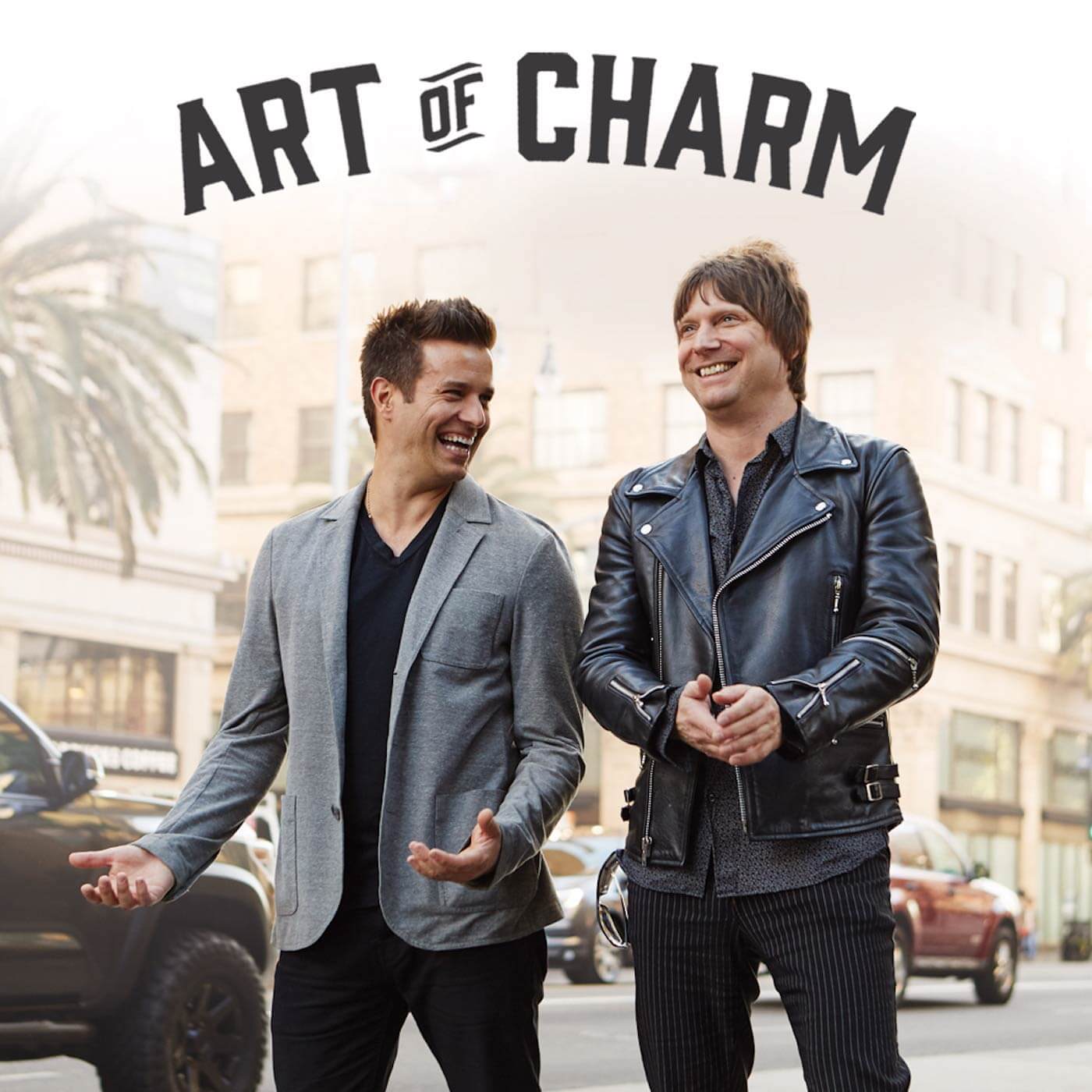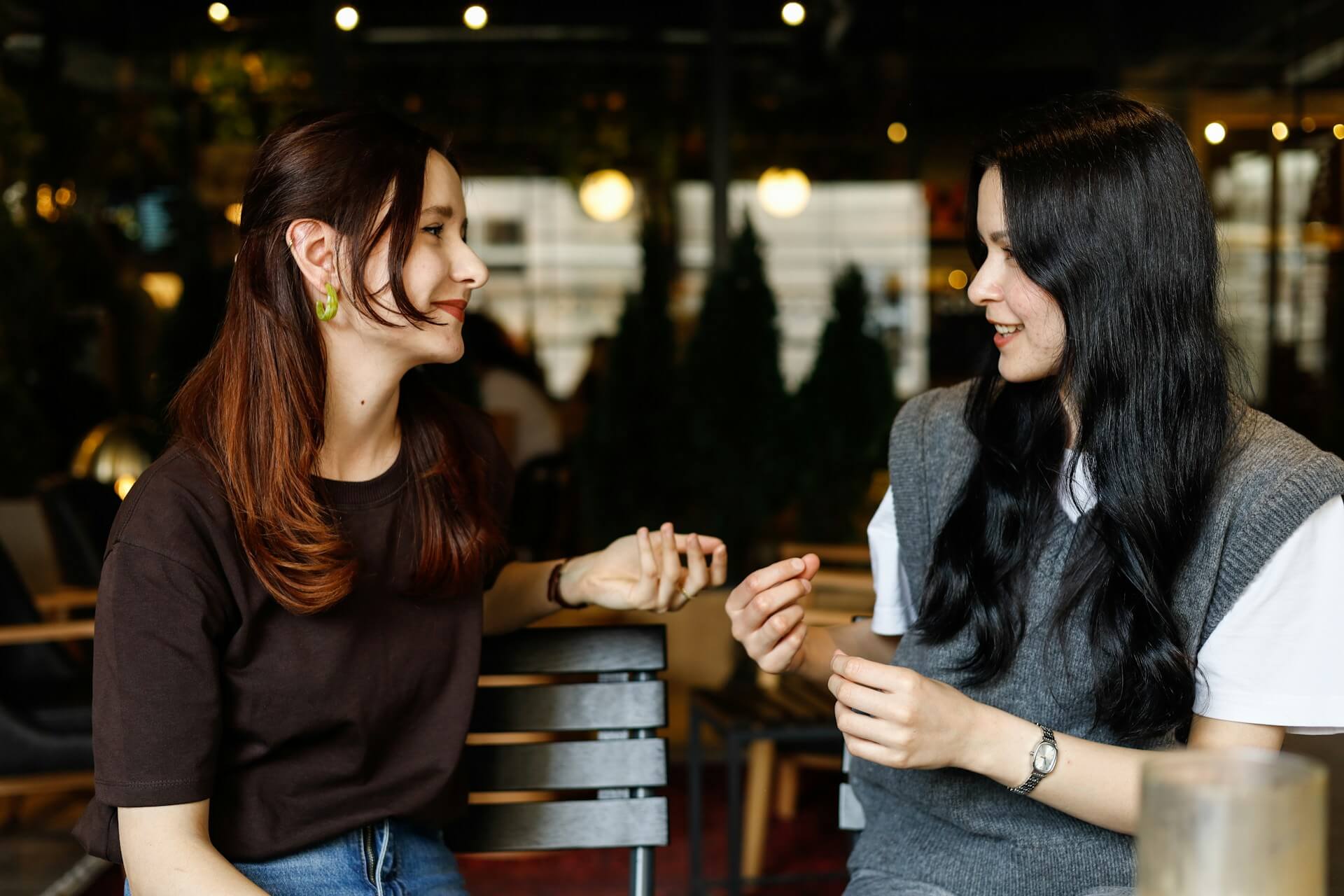Life is improv.
There is no script, no directors, no instruction manual for how to be successful. It’s all improvised. So to be good at life, you have to be good at improv.
Erin and Suzanne are professional comedic improvisers here in Los Angeles and coaches at The Art of Charm. Listen to today’s episode to hear how they approach the art of improvisation, ]and how we can inject these principles into our day-to-day lives!
The Cheat Sheet:
- What is improvisational comedy and how does it apply to our lives?
- Why do perfectionists and control freaks need to embrace the unknown?
- How do the principles of improvisation translate to your professional and personal lives?
- Why does improvisational comedy having nothing to do with being funny?
- And much much more…
[aoc-subscribe]
Please Scroll down for Full Show Notes and Featured Resources!
Acuity Scheduling is your online assistant, working 24/7 to fill your schedule. The AoC family can go to AcuityScheduling.com/AOC to get 45-days free — that’s over three times as long as the standard trial!
Share your vulnerabilities, victories, and questions in our 17,000-member private Facebook group at theartofcharm.com/challenge. This is a unique opportunity where everyone — both men and women — celebrate your accountability on the way to becoming the best version of yourself. Register today here!
More About This Show
We all have a sense of humor. How comfortable we feel showcasing it in any given situation is another story. For those of us who struggle with social anxiety, we block others from seeing our full selves out of fear.
In this episode on The Art of Charm podcast, we dive deep into the spirit of improvisational comedy with AoC coaches Erin Muroski and Suzanne Cotsakos. These professionals teach improv during our bootcamp weeks at our headquarters in Hollywood.
It is one of our most popular (and effective!) training techniques for improving confidence and removing social anxiety. Learn more about the transformational AOC bootcamp in Los Angeles here, where you will train hard, so you can fight easy.
And tune into this episode to learn the principles of improv and how to channel your sense of humor in any situation.
How Do You Define Improv?
How do you define improv? Erin says, “It’s being comfortable with not knowing what you’re going to do or say.”
If that sounds scary, you’re not alone. As you will hear in this episode, almost everyone drawn to improvisational comedy is deathly afraid of it. That’s because they’re the ones who–probably similar to you–rely heavily on plans.
Suzanne says, “I am very much a control freak. I like to make sure things go as planned. And that can hurt me.”
That’s what’s so exhilarating about improv. While the rest of our lives seem oddly pre-determined, getting on stage to do improv is brushing up against the cliffs of the unknown. How do you survive in such a high-stakes situation?
Embrace The “Yes, and…” Mentality
In improv, the first technique you learn is to “yes, and…” your scene partner. This means that whatever he or she says needs to be accepted as true (“yes”) and then built on top of (“and…”).
We’re not wired to converse this way. In our day-to-day conversations, we often don’t let the other person inform what we say. Instead, we steer the conversation into topics of our own interest because it’s easier than listening to find those shared territories.
But in improv class, a coach corrects you when you stop listening and try to manipulate the conversation. You’re reminded to open your ears, hear the words coming out of the other person’s mouth, and then “yes, and…” what that person said.
Suzanne talks about how rewatching her improv scenes on video has reframed her feelings of awkwardness, “I know that I can freak out inside, but I also know from the experience of video work that I don’t look as terrified as I feel.”
This is because when you embrace the “Yes, and…” mentality, you are empowered to push away those voices of self-doubt. Nothing will stump you because you have accept everything. This is one of the many benefits people experience from learning the fundamentals of improv.
Why Improv Has Nothing To Do With Being Funny
While it’s called “improvisational comedy,” notice how this conversation isn’t about being funny.
“A lot of people get it in their mind that to be funny, they have to use these comedic lines or witty one-liners, and that if that eludes them they think: ‘Well, I’m boring,’” Johnny says. He continues, “It’s about allowing these situations to build and let your uniqueness and quirkiness as a human being to deal with the situation.”
Improv is about listening and being present, not trying to be funny. AJ describes his reverse-engineering perspective, “I like to think of humor in conversation as the seasoning—the salt and pepper. It’s not the meat and potatoes. When you think back to the conversations you’ve had, the funny moments don’t really stand out. You just remember having fun.”
So we must relieve ourselves of the pressure to be funny. At The Art of Charm bootcamp, we often find that the quietest, shyest guys have the funniest, most memorable moments during improv exercises. For the first time, they are blurting out what’s on their mind instead of searching for that perfect thing to say.
How Improv Connects To Real Life
Taking an improv class forces you to face your fear of failure head-on. That’s because failure is part of the process.
Erin describes it perfectly: “Understand that you’re going to feel embarrassed. You’re going to feel like you failed. There are going to be a million negative feelings you have about yourself. And that’s amazing. Because what you’re trying to learn is how to push through that.”
Here at The Art of Charm, we see great results from these exercises which have been part of our program for many years (and you’ll hear from Johnny and Erin how it almost didn’t happen!) Participants enter the scene deathly afraid of saying something stupid or being boring, but they quickly learn that their fears are entirely made up.
When you expose the hollowness of your fears, you’re finally able to break through them.
“You just assume the other person has it all together, and for some reason, you’re the wreck. And that holds you back from having interactions that you want to have because you have that cognitive distortion that you’re the awkward, weird one,” Erin notes from her experience.
What you learn from doing improvisation is that everyone fails and once you survive that you actually get some wins. And once you have a few wins under your belt on stage, in front of others also showing their vulnerability, it’s an amazing feeling to push past the discomfort.
With that being said, find an improv theater in the city you live in and sign up for an introductory class. Google it and find out where you can hone your improv chops.
And tune into this episode of The Art of Charm to further learn how the power of improv can help you overcome real-life obstacles. You will learn to trust your instincts and impulses, and not think about every word before you speak.
P.s., we recorded another version of this interview a few months ago but we experienced some audio issues. To hear that bonus episode click here.
Resources from This Episode:
- Dale Carnegie Training
- UCB (Upright Citizens Brigade)
- Art of Charm Podcast | The Myth of Perfectionism (Episode 700)
- Art of Charm Podcast | Brutal Truths Part 1 (Episode 701)
- Art of Charm Podcast | Brutal Truths Part 2 (Episode 702)
- Art of Charm Podcast | The Bad House Guest: Cognitive Distortions (Episode 704)
- Mutasia
- Suzanne Cotsakos
- Erin Muroski
You’ll Also Like:
- The Art of Charm Challenge
- The Art of Charm Bootcamps
- Elite Human Dynamics
- Best of The Art of Charm Podcast
- The Art of Charm Toolbox
- Follow The Art of Charm on social media: Instagram | Twitter | Facebook
On your phone? Click here to write us a well-deserved iTunes review and help us outrank the riffraff!




